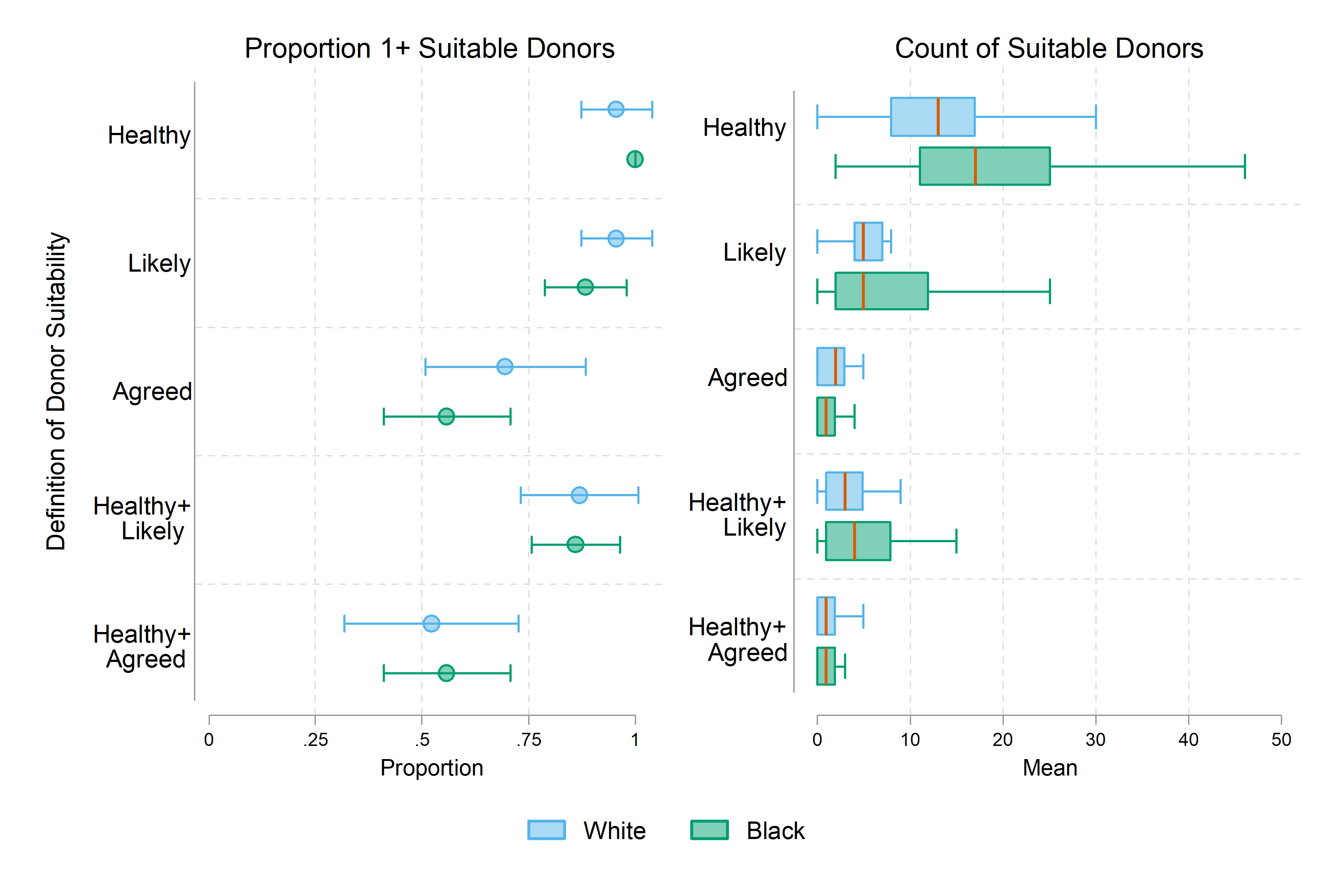Exploring the Differential Access Hypothesis: Do Black Kidney Transplant Candidates Have Less Social Network Access to Potential Living Donors Than White Candidates?
J. Daw1, M. Roberts1, T. Purnell2
1Sociology & Criminology, The Pennsylvania State University, University Park, PA, 2Johns Hopkins School of Medicine, Baltimore, MD
Meeting: 2022 American Transplant Congress
Abstract number: 15
Keywords: African-American, Kidney transplantation, Living donor, Psychosocial
Topic: Clinical Science » Kidney » 33 - Kidney Psychosocial
Session Information
Session Time: 3:30pm-5:00pm
 Presentation Time: 3:40pm-3:50pm
Presentation Time: 3:40pm-3:50pm
Location: Hynes Ballroom A
*Purpose: This study assesses the ‘differential access’ hypothesis that non-Hispanic Black kidney transplant candidates in the United States have access to fewer healthy, willing potential living kidney donors in their family and social networks than do non-Hispanic White transplant candidates. Although this question has been previously studied, it has generally done so using samples of potential living kidney donors who are being evaluated for living donation, not the underlying pool of potential living kidney donors who may or may not be evaluated for donation.
*Methods: This study employs a sample of 66 kidney transplant candidates (23 White, 43 Black) reporting on their ties to 1,482 family members and friends at a single, large transplant center. Each member of transplant candidates’ networks is coded on the basis of five definitions of potential donor suitability: the transplant candidate believes the network member is healthy enough to donate (Healthy); very likely to be evaluated for donation if asked (Likely); or has already agreed to be evaluated for donation (Agreed). We also categorize each network member as Healthy and Likely (Healthy + Likely) or Healthy and Agreed (Healthy + Agreed). The probability that each transplant candidate has one or more Healthy, Likely, Agreed, Healthy and Likely, or Healthy and Agreed network members is assessed by race, comparing Black and White patients.
*Results: For all five measures of potential living kidney donor suitability, there are no statistically significant Black-White differences in access to one or more suitable donors. Furthermore, the median Black patient had higher counts of Healthy or Healthy and Likely network members than the median White patient, and highly similar counts of Likely, Agreed, and Healthy and Agreed network members. None of these group differences were statistically significant.
*Conclusions: In this sample of kidney transplant candidates’ family and friendship social networks, there are no substantively or statistically significant differences in Black and White patients’ access to suitable donors. Rather, it is likely that potential donors’ barriers to donation drive Black-White disparities in living donor kidney transplantation.
To cite this abstract in AMA style:
Daw J, Roberts M, Purnell T. Exploring the Differential Access Hypothesis: Do Black Kidney Transplant Candidates Have Less Social Network Access to Potential Living Donors Than White Candidates? [abstract]. Am J Transplant. 2022; 22 (suppl 3). https://atcmeetingabstracts.com/abstract/exploring-the-differential-access-hypothesis-do-black-kidney-transplant-candidates-have-less-social-network-access-to-potential-living-donors-than-white-candidates/. Accessed February 25, 2026.« Back to 2022 American Transplant Congress

